What Is the Best Floor Material For My Sauna?
Building a sauna is a fantastic way to create a personal oasis for relaxation and health benefits. One crucial decision you'll need to make during this process is selecting the best floor material. The right choice ensures comfort, safety, durability, and maintenance ease. Let's dive into the various flooring options and help you make an informed decision.
Want us to design your entire sauna for free (and provide all the materials)?
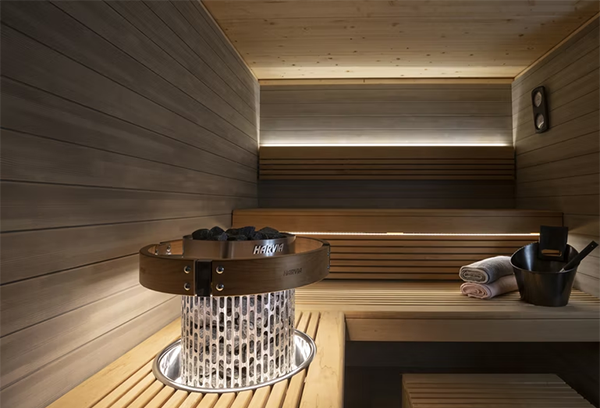
Why Flooring Matters in a Sauna
The flooring in a sauna isn't just about aesthetics; it plays a significant role in the overall sauna experience. Here’s why:
-
Safety: The floor needs to handle high temperatures and moisture without becoming slippery.
-
Durability: It should withstand frequent use and resist wear and tear.
-
Comfort: A comfortable surface enhances relaxation.
-
Maintenance: Easy-to-clean floors ensure hygiene and longevity.
Top Flooring Options for Your Sauna
Pros:
-
Natural Insulator: Cedar retains heat efficiently, providing a consistent sauna temperature.
-
Aromatic: The pleasant aroma enhances the sauna experience.
-
Resistant to Decay: Cedar is naturally resistant to moisture and decay.
-
Removable For Cleaning: These Duckboard panels can be removed to make cleaning easy.
Cons:
-
Cost: Cedar can be more expensive compared to other wood options.
-
Softness: It’s a softer wood, which can lead to denting and scratching over time.
Best For: Traditional saunas where the aesthetic and aromatic experience is valued.
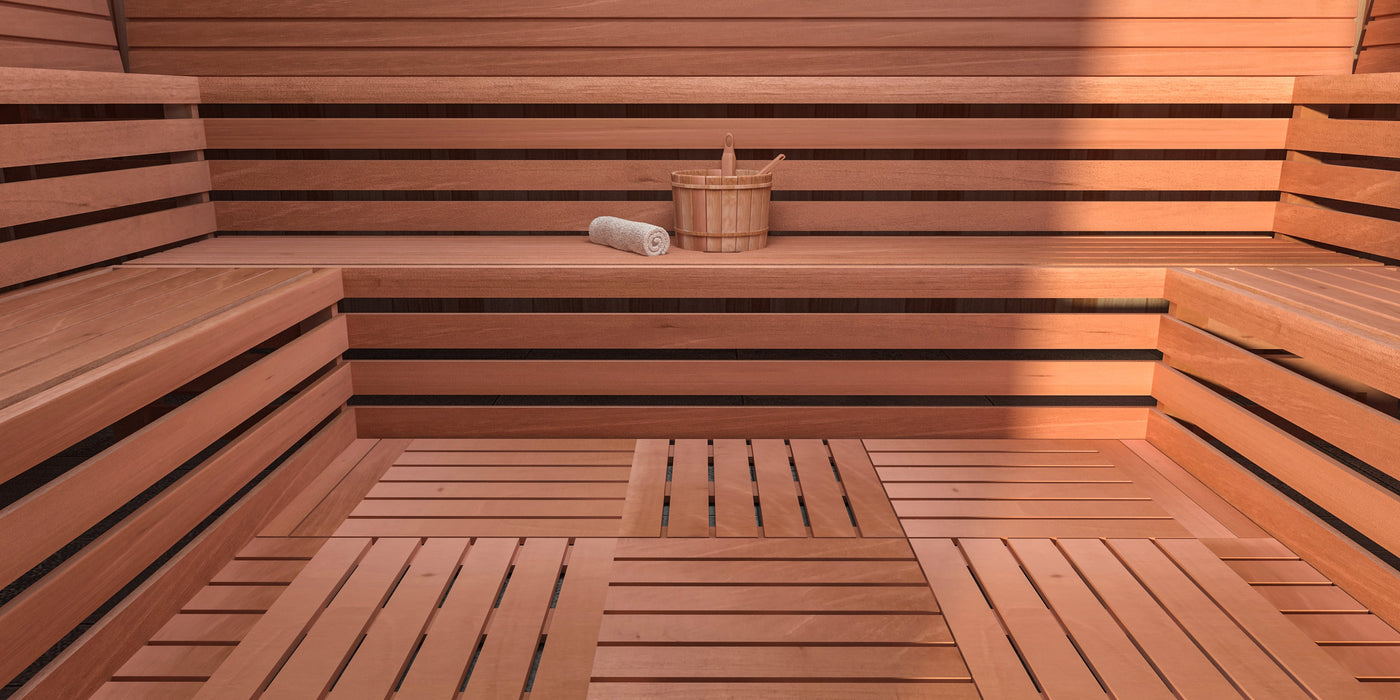
Pros:
-
Durability: The thermal modification process increases the wood's resistance to moisture and pests.
-
Stability: Less prone to warping and shrinking due to humidity changes.
-
Eco-Friendly: Treated without chemicals, making it a greener choice.
Cons:
-
Permanent: Usually needs to be screwed in meaning no cleaning underneath.
-
Potentially Slippery: Depending on the design you create it can be slick on the feet.
-
Cost: Slightly more expensive due to the modification process.
Best For: Saunas in humid environments or for those looking for an eco-friendly option.
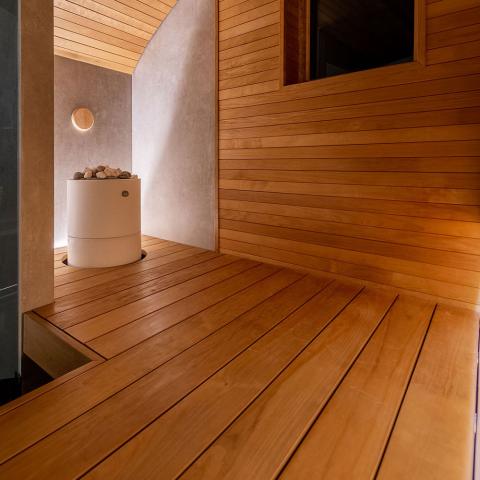
3. Concrete
Pros:
-
Durability: Extremely tough and long-lasting.
-
Customizable: Can be stained, polished, or textured to your preference.
-
Heat Retention: Maintains heat well, contributing to the sauna’s overall warmth.
Cons:
-
Cold Surface: Can be uncomfortably cold before heating up.
-
Hardness: Very hard underfoot, which might reduce comfort.
Best For: Modern saunas with a minimalist aesthetic or for those seeking a durable, low-maintenance option.
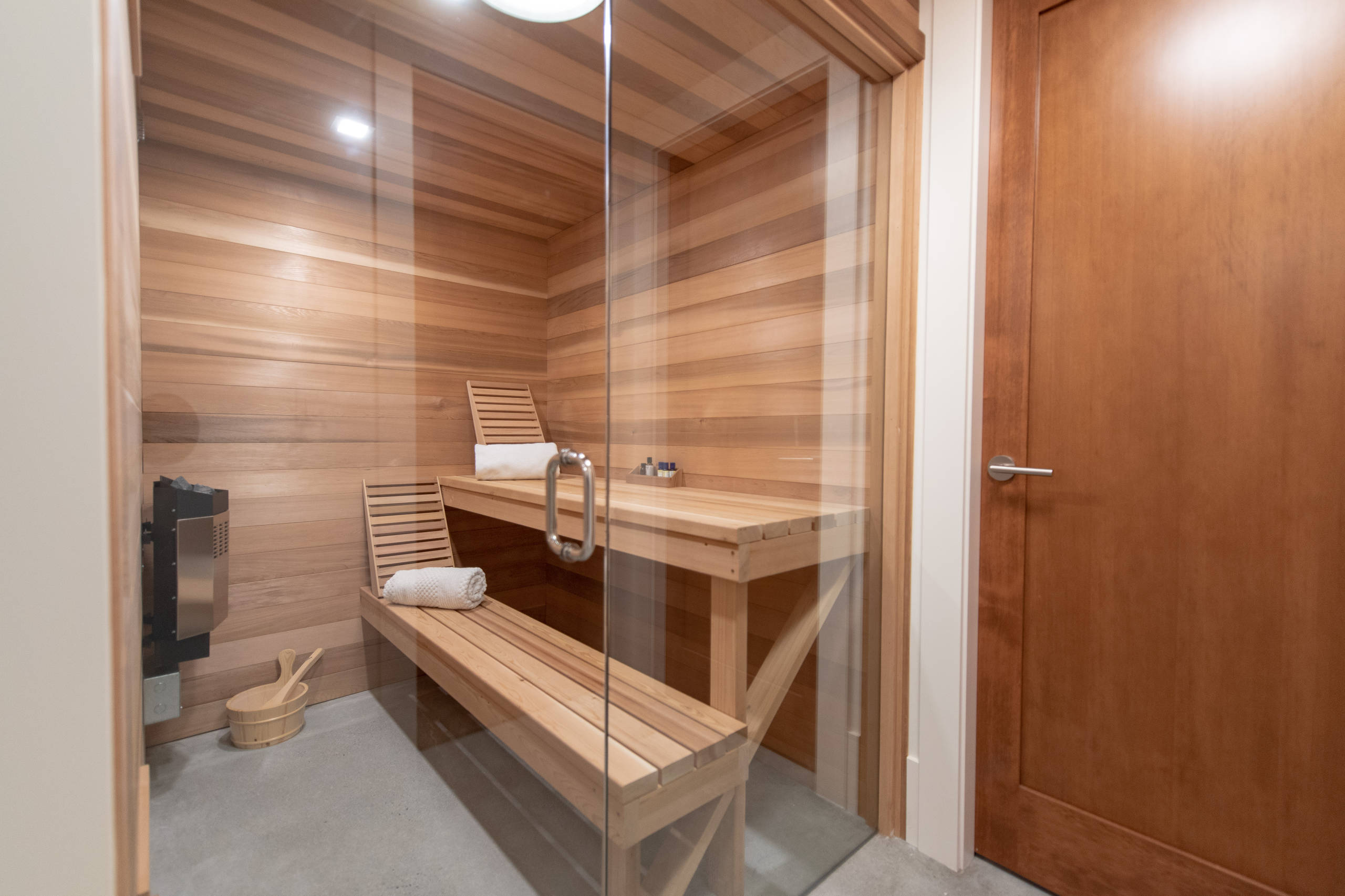
4. Ceramic Tiles
Pros:
-
Variety: Available in numerous styles, colors, and designs.
-
Easy to Clean: Resistant to stains and moisture, making them simple to maintain.
-
Durability: Highly durable and can withstand high temperatures and humidity.
Cons:
-
Slipperiness: Can become slippery when wet, posing a safety hazard.
-
Installation: Requires professional installation for best results.
Best For: Saunas with a focus on aesthetic variety and ease of cleaning.
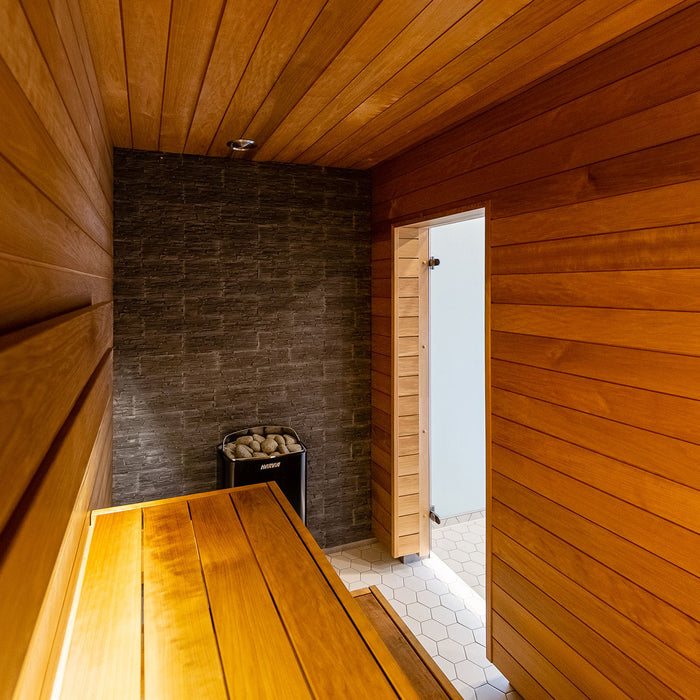
Pros:
-
Affordability: Typically more budget-friendly than wood or tile.
-
Comfort: Softer underfoot compared to concrete or tile.
-
Variety: Available in many designs, including wood-look options.
Cons:
-
Heat Sensitivity: Not as heat-resistant as other materials; may warp over time.
-
Lifespan: Generally has a shorter lifespan compared to wood or tile.
Best For: Home saunas on a budget or for those looking for a comfortable, soft flooring option.
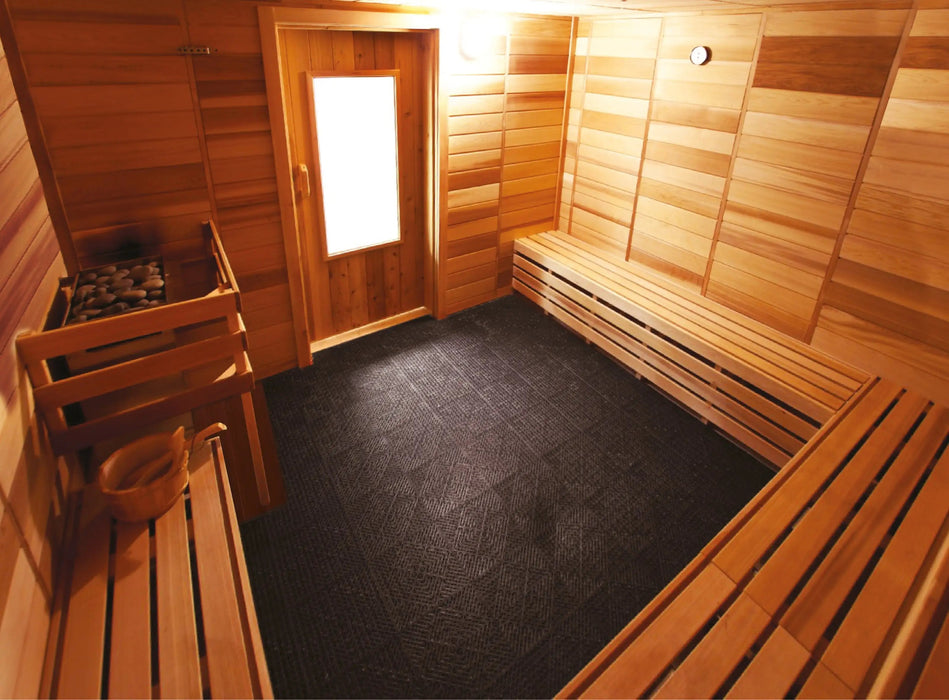
Choosing the Right Material for Your Sauna
When selecting the best floor material for your sauna, consider the following factors:
-
Budget: Determine how much you're willing to spend. Wood and tile tend to be pricier but offer durability and aesthetic appeal.
-
Maintenance: Think about how much time you want to spend cleaning and maintaining the floor.
-
Safety: Prioritize non-slip surfaces to prevent accidents.
-
Aesthetic: Consider the overall look you want to achieve in your sauna.
-
Comfort: Choose a material that feels good underfoot and enhances your relaxation experience.
Installation and Maintenance Tips
-
Professional Installation: For materials like tile and concrete, professional installation ensures a safe and durable setup.
-
Regular Cleaning: Keep your sauna floor clean to prevent mold and bacteria buildup.
-
Inspect for Damage: Regularly check for any signs of wear and tear, especially with wood flooring, and perform necessary repairs promptly.
FAQs
Q: Can I use regular wood for my sauna floor? A: Regular wood can warp and deteriorate due to the high heat and humidity in a sauna. It's best to use wood specifically treated or naturally resistant to these conditions, like cedar or thermally modified wood.
Q: Is vinyl flooring a good option for a commercial sauna? A: Vinyl can work in home saunas but might not be durable enough for commercial saunas with heavy use.
Q: How often should I clean my sauna floor? A: Clean your sauna floor after each use to maintain hygiene and prevent mold growth.
Final Thoughts
Selecting the best floor material for your sauna is essential for creating a safe, comfortable, and durable relaxation space. Each material has its own set of advantages and drawbacks, so consider your specific needs, preferences, and budget when making your choice. With the right flooring, your sauna can become a perfect personal retreat for years to come.









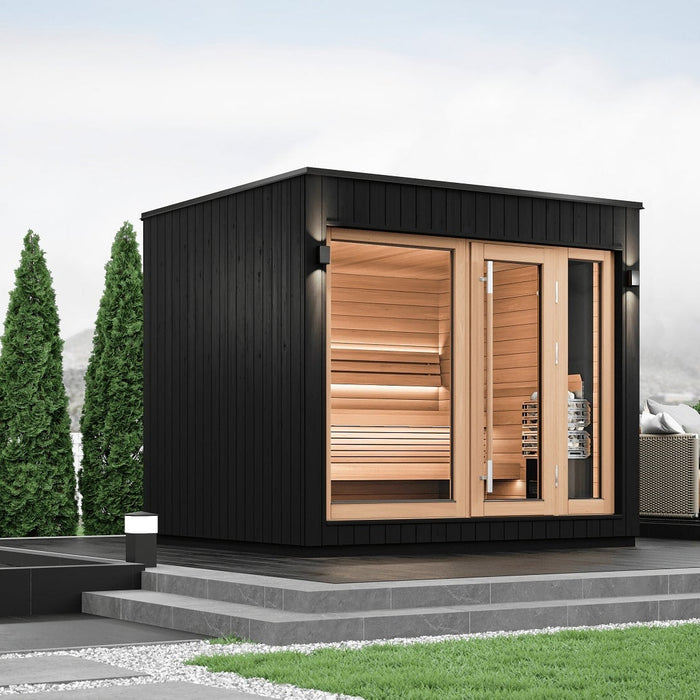
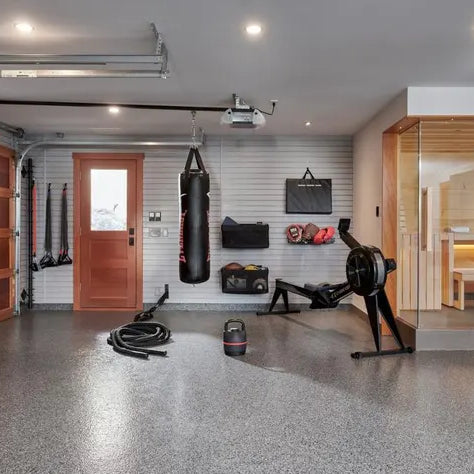
Leave a comment